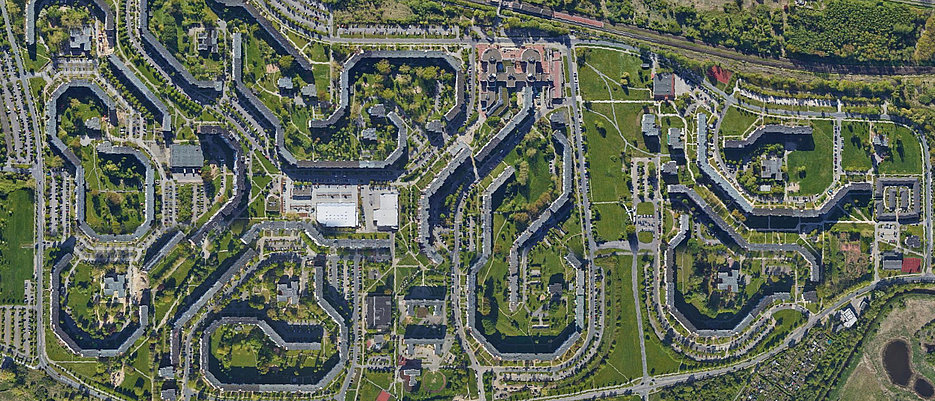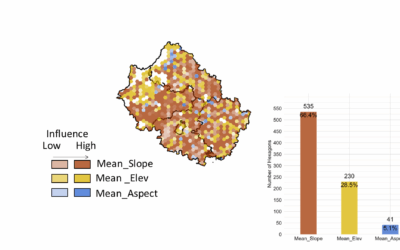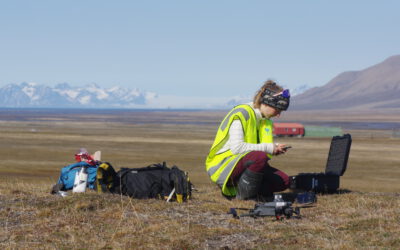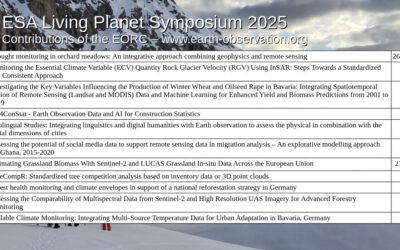Hannes Taubenböck will give a public talk “Germany – how and where we (want to) live” will be held in German at the Geography Society on October 23rd at 8 p.m. in Lecture Hall 166 in the University’s main building at Sanderring 2 (Neue Universität).
from the University press office announcement:
How will we build and live in the future? This question will be addressed in a public lecture by Hannes Taubenböck’s Chair of Global Urbanisation and Remote Sensing on 23 October at the University of Würzburg.
Rising rents, housing shortages and ambitious sustainability goals – which visions there are for the future of housing in Germany is one of the most controversial questions of our time. The Chair of Global Urbanisation and Remote Sensing offers an exciting scientific analysis of this at a public lecture on 23 October 2023 at 8 p.m. in Lecture Hall 166 in the main building of the Julius Maximilians University (JMU) at Sanderring 2. Using satellite and geodata as examples, Chair holder Prof. Hannes Taubenböck shows current housing trends in Germany and discusses together with the audience how we want to build and live in the future.
Bringing together different interests in the housing of the future
“How and where we live has an impact on our identity, our everyday life and even our health,” says Hannes Taubenböck. “That’s why, and because it really does affect everyone, there are so many different and often conflicting interests in this topic. On 23 October, we want to look into these issues together: How can our society bring all these perspectives together and think further in a democratic process?”
Specifically, the event will focus on research results from the cooperation between the German Remote Sensing Data Center (DFD) of the German Aerospace Center (DLR) and the Earth Observation Research Cluster of JMU. The lecture will last about an hour, after which the audience will have the opportunity to discuss the topic and ask questions. Admission costs three euros for adults and two euros for students. The lecture is free of charge for members of the Würzburg Geographical Society. Registration is not requested.
from the University press page – in german:
Wie werden wir in Zukunft bauen und wohnen? Mit dieser Frage beschäftigt sich ein öffentlicher Vortrag des Lehrstuhls für Globale Urbanisierung und Fernerkundung von Hannes Taubenböck am 23. Oktober an der Uni Würzburg.
Steigende Mieten, Wohnungsmangel und ambitionierte Nachhaltigkeitsziele – welche Visionen es hierzulande für die Zukunft des Wohnens gibt, das ist eine der umstrittensten Fragen unserer Zeit. Eine spannende wissenschaftliche Analyse dazu bietet der Lehrstuhl für Globale Urbanisierung und Fernerkundung am 23. Oktober 2023 um 20 Uhr bei einem öffentlichen Vortrag im Hörsaal 166 im Hauptgebäude der Julius-Maximilians-Universität (JMU) am Sanderring 2. Am Beispiel von Satelliten- und Geodaten zeigt Lehrstuhlinhaber Prof. Hannes Taubenböck aktuelle Wohntrends in Deutschland auf und diskutiert gemeinsam mit dem Publikum, wie wir in Zukunft bauen und wohnen wollen.
Unterschiedliche Interessen zum Wohnen der Zukunft zusammenbringen
„Wie und wo wir wohnen, das hat Einfluss auf unsere Identität, unseren Alltag und sogar auf unsere Gesundheit“, sagt Hannes Taubenböck. „Deshalb und weil es wirklich jeden und jede betrifft, gibt es bei diesem Thema so viele unterschiedliche und häufig auch gegensätzliche Interessen. Am 23. Oktober wollen wir gemeinsam schauen: Wie kann unsere Gesellschaft alle diese Perspektiven zusammenbringen und in einem demokratischen Prozess weiterdenken?“
Konkret wird es bei der Veranstaltung um Forschungsergebnisse gehen aus der Kooperation des Deutschen Fernerkundungsdatenzentrums (DFD) des Deutschen Zentrums für Luft- und Raumfahrt (DLR) mit dem Earth Observation Research Cluster der JMU. Der Vortrag dauert etwa eine Stunde, anschließend bekommt das Publikum die Möglichkeit, zum Thema zu diskutieren und Fragen zu stellen. Für Erwachsene kostet der Eintritt drei Euro, Studierende zwei Euro. Für Mitglieder der Geographischen Gesellschaft Würzburg ist der Vortrag kostenfrei. Um Anmeldung wird nicht gebeten.
read more here: https://www.uni-wuerzburg.de/aktuelles/pressemitteilungen/single/news/einladung-visionen-fuer-das-wohnen-der-zukunft-1/








